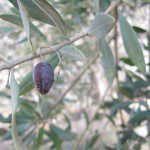 The scriptures contain a number of food metaphors. I’ve been working for a few years on an article talking about them: “milk before solid food,” “feast upon the words of Christ,” etc. But there are also some good ones in recent LDS tradition. Notably, Elder Holland gave a great talk called “A Teacher Come from God.”
The scriptures contain a number of food metaphors. I’ve been working for a few years on an article talking about them: “milk before solid food,” “feast upon the words of Christ,” etc. But there are also some good ones in recent LDS tradition. Notably, Elder Holland gave a great talk called “A Teacher Come from God.”
The summary takeaway is that
We must revitalize and reenthrone superior teaching in the Church—at home, from the pulpit, in our administrative meetings, and surely in the classroom.
Where do we get superior teaching of the scriptures from? Well, he invokes food metaphors.
When crises come in our lives—and they will—the philosophies of men interlaced with a few scriptures and poems just won’t do. Are we really nurturing our youth and our new members in a way that will sustain them when the stresses of life appear? Or are we giving them a kind of theological Twinkie—spiritually empty calories? President John Taylor once called such teaching “fried froth,” the kind of thing you could eat all day and yet finish feeling totally unsatisfied.
What are theological Twinkies? Light fluffy things that look like food, but don’t really nourish. You can’t build a strong spiritual body on theological Twinkies. Sure, you can down one every so often without problems, but too many in your diet and you get spiritual diabetes.
I agree with this assessment made at a BYU Devotional.
Too much of the literature used, seen, and quoted in the Church today is just sentimental trash which is designed to pull our heartstrings or moisten our eyes, but it is not born of true spiritual experience. The tendency of our youth to use sentimental stories in Church talks creates a culture of spiritual misunderstanding in which thinking and learning are discouraged.
Beyond materials that mistake sentimentality for spiritual food, I would also put in the category of spiritual Twinkie much of the repackaged simplistic material and sensationalistic claims of Deseret Book, such as the Lincoln Hypothesis and Washington Hypothesis. These are highly problematic books with serious flaws, but we eat them up because they flatter us, they appeal to our preconceptions, they don’t challenge, they taste good.
Mmmm, Twinkies.
Elder Delbert Stapley once said in a moment of candor, “the Saints are suckers” (as quoted by Robinson in Following Christ) and Elder Maxwell mourned how our “gullibility” and “lack of theological sophistication” made us vulnerable in negative ways.
If we LDS are collectively having a spiritual diabetes epidemic, we are at least partially to blame.
What is the solution?
Real discipleship. Costly discipleship. Deep scripture study. Reading history instead of historical fiction. Moving beyond Primary- and Seminary-level understandings of Church history, doctrine, and scripture. Getting out of our comfort zones in loving our neighbors.
In other words, “Eating your vegetables.” As Elder Christofferson expands,
“Eat your vegetables; it will do you good.” Our mothers are right, and in the context of steadfastness in the faith, “eating your vegetables” is to pray constantly, to feast on the scriptures daily, to serve and worship in the Church, to worthily take the sacrament each week, to love your neighbor, and to take up your cross in obedience to God each day.
We all need new beginnings. Spencer Fluhman’s recent BYU Devotional on “The University and the Kingdom of God” is a good place to start.
As always, you can help me pay my tuition here, or you can support my work through making your regular Amazon purchases through the Amazon links I post. You can also get updates by email whenever a post goes up (subscription box on the right). You can also follow Benjamin the Scribe on Facebook. If you friend me on Facebook, please drop me a note telling me you’re a reader. I tend not to accept friend requests from people I’m not acquainted with.










